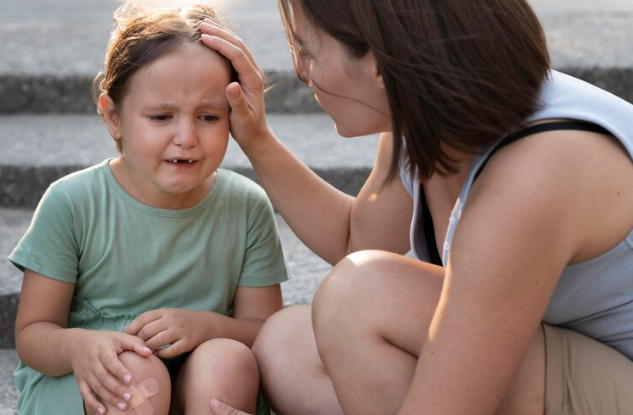
Around the age of 3-4 years old, your child may begin to ask himself the first questions on the subject of death.
Often these questions are faced by children in evasive and sometimes refusal terms because at this age death is experienced as an absence that causes a feeling of emptiness and pain, and not as a definitive disappearance. Abandonment and related fear are sensations that the child at this age has already experienced. In fact, when he was younger and saw his mother leaving, the fear arose in him that she would never return, but growing up he experienced and learned that the absence of loved ones is followed by their return and therefore he continues to believe that this also happens for people who die.
The child asks questions about why people die and listens to the answers, but finds it impossible to believe that a loved one never comes back. His "magic thinking" also enters the field, as a protective screen, which gives him the illusion of modifying reality as he pleases.
The defensive childhood approach must not lead parents to the choice of lying to their child on this delicate topic, mistakenly thinking that it is better to hide the episodes of death that affect the family. On the contrary, it is important to address the issue clearly, with delicate and affectionate words, calibrated to the age of the children but sincere in their essence. Clarity will prevent your child's mind from being populated by ghosts more distressing than reality.
In our opinion, phrases such as "He is sleeping" "He has gone on a trip" should be avoided, which will trigger an understandable fear in going to sleep or travel pursuits or that someone close may, sleeping or leaving on a journey, die and never return.
The child neuropsychiatrist Francoise Dolto suggested answering in an elementary and assertive way: «We die because we live».
Around 5/6 years of age, rationality begins to prevail over infantile illusions and therefore the child can understand that death is something irreversible and definitive. Consequently, the fear of dying becomes a more concrete feeling, a frightening discovery: this event can also concern the people who are dear to him, as well as himself.
In this phase, the parents' answers to the child's questions must be reassuring as well as sincere. In these answers everyone can introduce their own religious beliefs or spiritual reflections. In any case, it is essential to be consistent.
What the child grasps is not so much the religious or philosophical content as the emotional tone: for this reason it is essential not to lie to him because this would disorient the child, fueling his fantasies and his most distressing explanations. In the absence of an elucidation, the child could convince himself that he is somehow guilty of causing the event, responsible for the death of others. The reality, although very painful, must not be hidden. This could cause a feeling of low trust in you, having "lied" to him, and would make you lose that fundamental role as an adult to whom you can turn and from whom you feel respected despite his young age.
The child's suffering will be great, but he will have the support of the parents' sincere affection, the belief that he can always count on them... and he will not feed on ghosts and unanswered questions, which could - otherwise - haunt him for a long time. Be aware that your child may try to find someone who can share his feelings, fears and questions with. (Using photos, pictures, games, stories could be very helpful!).
For more support: https://www.youngminds.org.uk/parent/parents-a-z-mental-health-guide/counselling-and-therapy/
There are also bereavement charities that offer helplines, email support, and online communities and message boards for children.
These include:
Child Bereavement UK – call 0800 028 8840 Monday to Friday, 9am to 5pm, or email
Cruse Bereavement Care – call 0808 808 1677 Monday and Friday, 9.30am to 5pm; Tuesday, Wednesday and Thursday 9.30am to 8pm; Saturday and Sunday 10am to 2pm
Grief Encounter – call 0808 802 0111 Monday to Friday, 9am to 9pm, or email
Hope Again – call 0808 808 1677 Monday to Friday, 9.30am to 5pm, or email
Winston's Wish – call 0808 802 0021 Monday to Friday, 8am to 8pm, or email
You can also find out more about children and bereavement from the Childhood Bereavement Network


